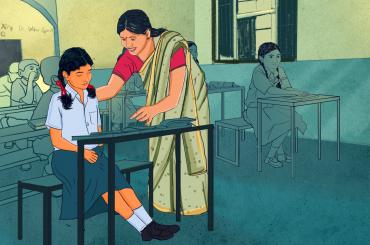

Jason Kerwin is an Associate Professor in the Department of Economics and a Brimmer Distinguished Scholar at the University of Washington, an Affiliated Professor at J-PAL, and a Research Fellow at IZA. His research focuses on understanding the choices people in developing countries make about health, education, employment, and savings, with a specific focus on Malawi, Uganda, Ghana, Egypt, and India.
He received his Ph.D. in Economics from the University of Michigan, where he was also an Economic Demography Trainee at Michigan’s Population Studies Center. From 2015 to 2024, he was on the faculty of the Department of Applied Economics at the University of Minnesota.
Recent work by Jason Kerwin
-

People think it’s easy to contract HIV. That might not be a good thing.
Despite the high HIV prevalence in Malawi, individuals do not seem to adjust their behaviour to avoid infection—this may be due to the perceived transmission risk being so high that people become fatalistic, assuming they are doomed to HIV infection ...
Published 02.04.25
-

Enhancing secondary school learning: Role of remedial camps and teacher flexibility
A key dilemma in Indian education is that while children are enrolled in school, they are not actually learning. Based on an experiment in Odisha, this article explores possible solutions to the learning deficit in secondary schooling. It finds that ...
Published 30.04.24
-

Some children left behind: When mean impacts and individual impacts differ
Even interventions with large average benefits do not help everyone, which is a serious challenge for education policy in developing countries
Published 24.06.22
-

Healthcare appointments as effective commitment devices: Evidence from Malawi
The offer of an appointment more than doubled the likelihood of men getting an HIV test, and was most effective for men wanting a commitment device
Published 04.02.22
-

Overcoming barriers to savings through deferred wage payments: Evidence from Malawi
Having the option of getting paid later can help developing-country workers save for larger purchases, and make lasting improvements to their homes
Published 28.06.21